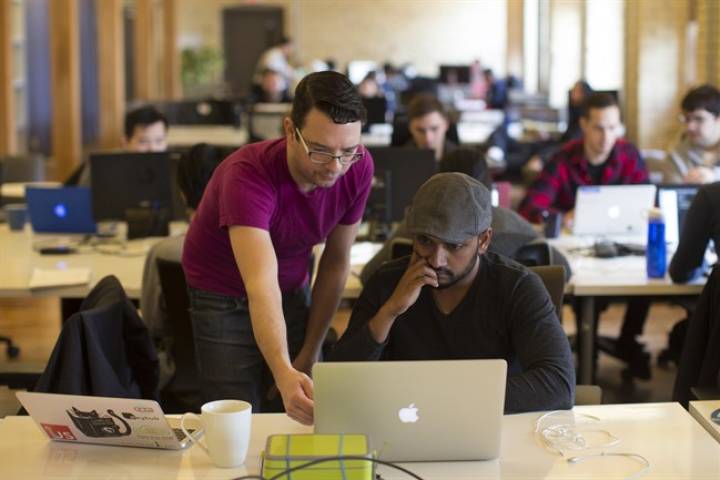It’s no secret that Vancouver has been marketing itself as Canada’s tech destination — and has certainly earned some bragging rights with start up successes like Hootsuite, Slack and Plenty of Fish.

But as the city aims to make itself the country’s premier tech hub — shopping big names like Amazon’s HQ2 — it’s failing in one key area according to a local tech CEO.
Ian Crosby, CEO and co-founder of Vancouver-based Bench recently penned an editorial titled, “This is the one thing stopping Vancouver from becoming a mega tech hub”; on Friday, he joined CKNW’s Simi Sara to explain why.
From Crosby’s perspective, there are two targets Vancouver needs to meet to suceed: creating higher paying jobs, and coming up with enough of the right people to fill them.
And he says there’s one thing B.C. could do to meet both of them — graduate more people in the engineering and tech fields.
Crosby should know. While he later went on to found a successful online bookkeeping startup, he initially attended the University of British Columbia for arts.
Not because he wanted to, but because he couldn’t get into engineering.
WATCH: Teen tech guru Tanmay Bakshi on bringing coding to kids

“I had like an 83 average and the entrance requirement that year was 90-something,” he said.
“It wasn’t my passion, but hey, ‘if I fight for two years and I get my grades up, maybe I can actually transfer into something that I actually want to study, and there’s long term career prospects for me.’ Why are we doing that to our kids?”
In Crosby’s eyes, the province’s universities need to open up more space for the students who will fill the jobs that are already in demand.
“If you look at the University of British Columbia, for example, they graduate six and half times more liberal arts grads than anything software engineering related combined,” Crosby said.
That ratio, Crosby said, fails to take into account the supply of and demand for skilled workers, and is essentially arbitrary.
And it’s one he believes governments haven’t taken a serious look at — even though elementary and high schools are now training kids in things like coding.
WATCH: Vancouver conference aims to reverse slide in innovation

Crosby clarified that he isn’t trying to demean what’s learned in liberal arts programs — saying graduates in those fields have their own set of useful skills.
But he said they, too, are being punished by a system that cranks out more grads than are needed in one field, while not opening enough seats in another.
“If you’re graduating too many liberal arts grads, you’re also artificially decreasing wages in those industries. They’re tremendously valuable skills, but if companies don’t have to compete to get a liberal arts grad … wages are going to stay low.”
Crosby said he’s having conversations with senior levels of government about how they can create more space for grads to feed Vancouver’s tech sector.
But for now, he said the lack of a steady supply of trained labour remains the one thing holding the city back.
“We’re not making those kinds of decisions, it’s just inertia.”








Comments